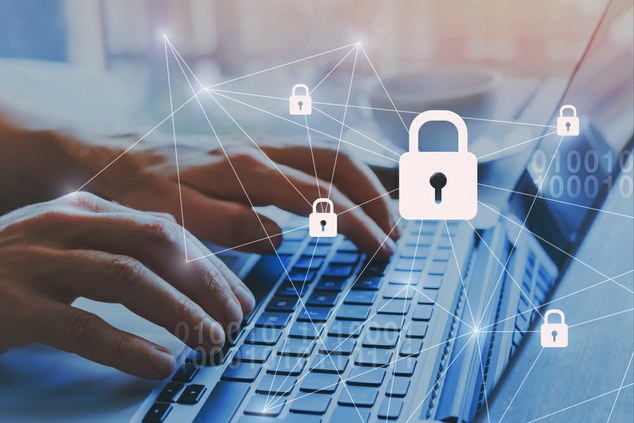Cyber attacks surge and grow in sophistication across key industry sectors as criminals unleash the power of AI
JOHANNESBURG, South Africa, 19th November, 2025 – Check Point® Software Technologies Ltd. (NASDAQ: CHKP), a pioneer and global leader of cyber security solutions, today released its African Perspectives on Cyber Security Report 2025, revealing a sharp rise in attacks across the continent and a major shift in attacker tactics driven by artificial intelligence.
African organisations now face an average of 3,153 attacks per week. Among the key countries analysed – Nigeria, South Africa, Kenya, and Morocco – Nigeria recorded the highest number of weekly attacks at 4,200, while Ethiopia ranked as the most attacked nation overall.
Threat actors are increasingly using AI to automate phishing, impersonation, and cloud exploitation. They also target exposed identities and misconfigured systems to gain access. Across finance, energy, telecoms, and government, Check Point Research observed a surge in identity-led intrusions, AI-generated phishing, and multi-vector ransomware.
“AI has become part of the attack surface,” said Lorna Hardie, Regional Director for Africa at Check Point Software Technologies. “Attackers are using it to automate phishing and identity theft at scale. The only effective response is prevention-first security that combines visibility, governance, and AI protection.”
CONTINENTAL FINDINGS
- Nigeria: The country’s high volume of weekly attacks on the continent, attributed to business email compromise and cloud exploitation.
- South Africa: A sharp rise in ransomware, smishing, and botnet infections such as Vo1d and XorDDoS.
- Kenya: Critical infrastructure attacks, including ransomware targeting the national energy grid.
- Morocco: Coordinated government and education sector disruptions via DDoS and defacement campaigns.
Across all markets, AI-generated phishing, credential theft, and misconfigured cloud environments were the leading causes of compromise.
The new threat landscape
The report identifies five key shifts shaping Africa’s cyber risk in 2025. Attacks are escalating in sophistication. Nigeria now records more than over 4 200 attacks per organisation per week for example. The continental average is 3,153 attacks weekly, 60 % higher than the global baseline of 1,963 attacks per organisation per week. Traditional ransomware has evolved into data-leak extortion, where criminals threaten exposure rather than encryption. AI-powered deception is now pervasive, creating realistic fake voices, videos, and messages that bypass conventional defenses. Identity has become the new perimeter as attackers exploit credentials and misconfigured access, while compliance itself has emerged as a business risk. Under new regulations such as the EU’s NIS2 Directive, weak cybersecurity can now block access to international markets, making digital resilience an economic necessity.
Africa’s next phase: prevention-first security
The African Perspectives on Cybersecurity Report 2025 urges a collective rethink of resilience as digital transformation accelerates across the continent. The findings show that technology innovation, from AI to cloud and identity systems, is outpacing the security frameworks designed to protect them. Addressing this imbalance requires a coordinated shift from reaction to prevention, ensuring that African economies can grow safely in the age of intelligent automation.
The report highlights the importance of continuous risk assessment, regulatory readiness, and public-private collaboration in building long-term digital trust. For business and government leaders, prevention is no longer a technical priority but a strategic one that underpins economic stability and market confidence.
“The real challenge is not adopting new technology but securing the trust that underpins it. As AI reshapes how organisations operate, cybersecurity must move from reaction to prediction. The future of resilience in Africa depends on prevention-first strategies that anticipate threats before they emerge,” Hardie concludes.
Africa’s digital future will be defined not only by how fast it connects, but by how well it protects.
Follow Check Point via:
LinkedIn: https://www.linkedin.com/company/check-point-software-technologies
X: https://www.twitter.com/checkpointsw
Facebook: https://www.facebook.com/checkpointsoftware
Blog: https://blog.checkpoint.com
YouTube: https://www.youtube.com/user/CPGlobal
About Check Point Software Technologies Ltd.
Check Point Software Technologies Ltd. (www.checkpoint.com) is a leading protector of digital trust, utilising AI-powered cyber security solutions to safeguard over 100,000 organizations globally. Through its Infinity Platform and an open garden ecosystem, Check Point’s prevention-first approach delivers industry-leading security efficacy while reducing risk. Employing a hybrid mesh network architecture with SASE at its core, the Infinity Platform unifies the management of on-premises, cloud, and workspace environments to offer flexibility, simplicity and scale for enterprises and service providers.
Legal Notice Regarding Forward-Looking Statements
This press release contains forward-looking statements. Forward-looking statements generally relate to future events or our future financial or operating performance. Forward-looking statements in this press release include, but are not limited to, statements related to our expectations regarding future growth, the expansion of Check Point’s industry leadership, the enhancement of shareholder value and the delivery of an industry-leading cyber security platform to customers worldwide. Our expectations and beliefs regarding these matters may not materialise, and actual results or events in the future are subject to risks and uncertainties that could cause actual results or events to differ materially from those projected. The forward-looking statements contained in this press release are also subject to other risks and uncertainties, including those more fully described in our filings with the Securities and Exchange Commission, including our Annual Report on Form 20-F filed with the Securities and Exchange Commission on April 2, 2024. The forward-looking statements in this press release are based on information available to Check Point as of the date hereof, and Check Point disclaims any obligation to update any forward-looking statements, except as required by law.




